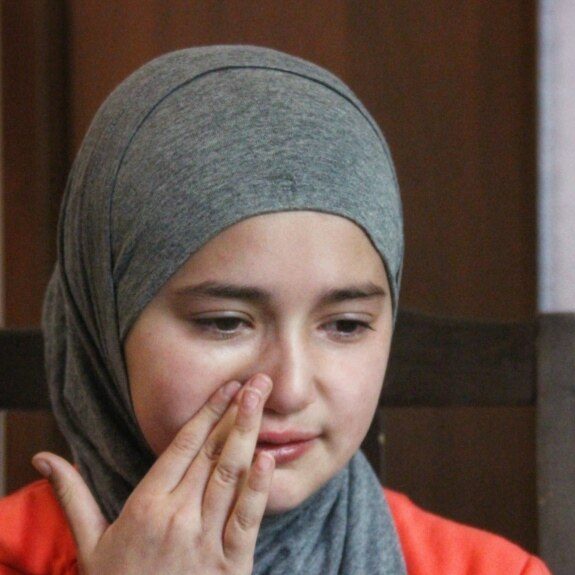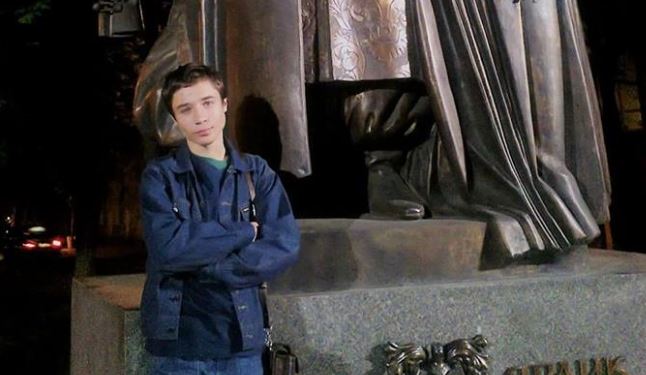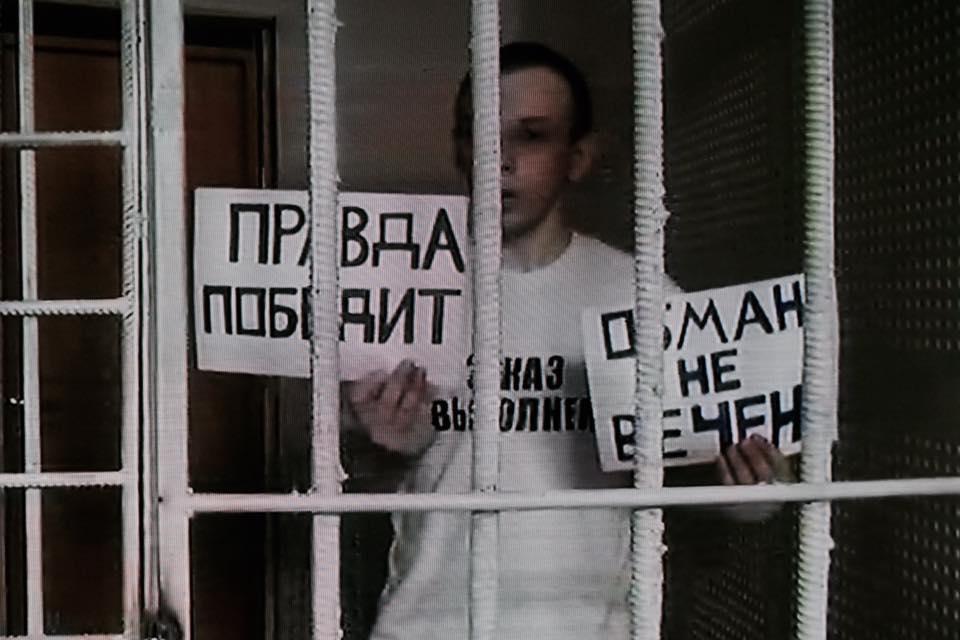Since the beginning of the occupation of Crimea, it were the Crimean Tatars who suffered the brunt of Russian repressions. Their elected representative body -- the Mejlis -- was banned as an extremist organization in 2016, Crimean Tatar media were outlawed, activists and religious leaders were arrested and persecuted as Islamist extremists.
Any form of open opposition to the regime was violently suppressed. Waves of arrests and imprisonment were justified by real or alleged association with the Islamic organization Hizb ut-Tahrir - a non-violent religious group legally functioning in Ukraine but branded as a terrorist organization by Russia and several other governments.
Leaders and activists are not the only victims, however. The repressions also struck local communities and families, directly or indirectly targeting spouses, children, friends, and neighbors. This cynical method was meant to spread fear among those left behind, terrorize them into submission, and attack their sense of identity and solidarity. But it was in this terror where everyday Crimean Tatar citizens found the strength to support one another and unite in non-violent resistance.
Families and communities under assault
The following cases illustrate how the crackdowns go beyond the arrests and imprisonment of activists. They serve to demonstrate the suffering of children, wives, and neighbors, who are traumatized by early morning police raids and then suffer the loss of their beloved father or a valued member of the community.
Nabi Rakhimov: Uzbek citizen killed by Russian FSB during a search in occupied Crimea
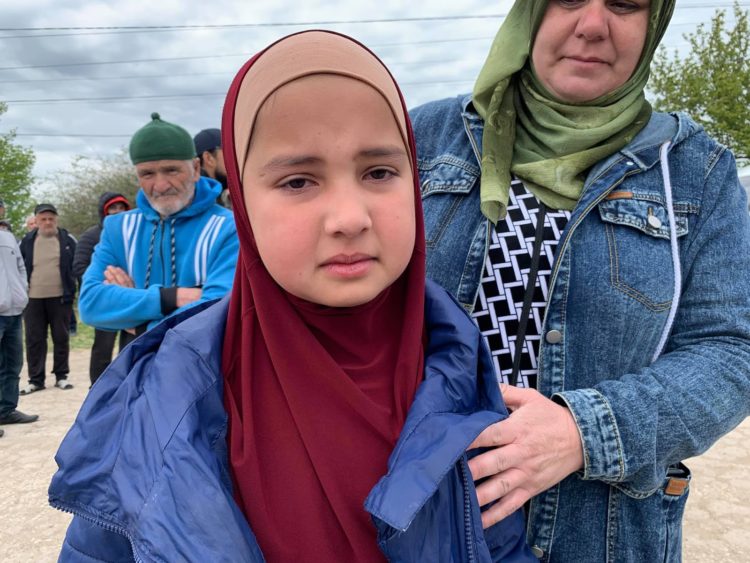
Nabi Rakhimov was an Uzbek citizen, a devout Muslim, and a father of four, born in Uzbekistan but living in Moscow since 1999. Eleven years after leaving his home country, the Uzbek authorities charged him with extremism for alleged membership in Hizb ut-Tahrir. In 2013, he was detained in Russia for several months and was threatened with extradition, which could mean torture in Uzbek prisons.
Protesting his unlawful detention, he filed a lawsuit against Russia at the European Court of Human Rights in 2014 and was even awarded damages. He was never extradited and in 2015 he moved to the Crimean village of Zavetnoye, where he became a well-regarded member of the local community.
On May 11, Rakhimov was in his house in Dubki in the outskirts of the Crimean capital of Simferopol, engaged in construction work and preparing food for fellow Muslims fasting during Ramadan. That day, FSB officers conducted several house searches, one of them in Mr. Rakhimov’s house.
Nabi Rakhimov was shot and killed during it under unclear circumstances. Arguing by necessary self-defense, the officers stated he was an “armed militant” who resisted arrest. They presented a gun and remnants of a grenade as proof, though there are no witnesses or further evidence to corroborate the officers’ version of events. Those who knew Nabi and his family described him as a non-violent man and refused to believe he would be carrying, let alone using weapons. As of yet, the authorities are refusing to hand over Mr. Rakhimov’s body.

At the same time, another search was conducted in Rakhimov’s family home in Zavetnoye, where his equipment was confiscated and his wife Sahiba Burkhanova arrested and taken to custody along with her 15-year-old-son Takyuddin. Sahiba herself was charged with violating the regime of residence in the Russian Federation.

During her interrogation, she was shown three pictures of her dead husband to identify the body - that was how she learned about his death. Due to the events of a single day, four children lost their father, their mother was arrested and eventually sentenced to deportation to Uzbekistan, and they themselves might be sent to an orphanage.
Although Rakhimov was not a Crimean Tatar, his alleged association with Hizb ut-Tahrir is the latest in a string of recent arrests of Crimean Muslims, most of whom are ethnic Crimean Tatars.
This is the first case where somebody lost life in the process of the arrest, however.

Tofik Abdulgaziev: Crimean Solidarity activist and a father of three
On March 27, 2019, a group of Crimean Solidarity activists was arrested and charged with terrorism, also due to alleged ties to Hizb ut-Tahrir. One of them, Tofik Abdulgaziev, described in the April court hearing the circumstances of his arrest.
After several FSB officers entered his home at 5 AM, they took him to the house where his three children (aged four, eight, and twelve), his 75-year-old mother who suffers from diabetes and heart disease, and her other son, who is paralyzed and requires constant care as he is fed from a tube, were located.

After searching the entire house in front of its residents and “discovering” two books deemed extremist -- according to Mr. Abdulgaziev they were planted there during the search -- the activist was arrested and taken to custody. The officers took no account of the trauma this event caused to Abdulgaziev’s family members, especially to his mother, who was particularly shaken by the events.
While Mr. Abdulgaziev was being taken away, his daughter ran up to him, hugged him, and asked whether they would see each other again. He has been separated from his loved ones since then, currently being tried in Rostov-on-Don.
Bilyal Adilov: Crimean Tatar activist, imam, and a father of eight
The family of Bilyal Adilov, an activist and a religious leader who was arrested on the same day as Abdulgaziev, experienced a similar situation. Around twenty police officers in balaclavas entered his family house suddenly around 5 AM. Present were eight children of Bilyal and his wife Gulnara Adilova (the youngest one is three years old), and also Gulnara’s elderly parents.

All the children gathered in one room, where parents covered their heads so they would not witness the search and the arrest. Once again, illegal religious books were “found,” despite Bilyal’s statement he had never seen them before, and the father of eight was taken away in front of his children.
The interview of Krym.Realii with his family members illustrates the suffering this incident has caused. Adilov’s children and wife still experience trauma when reminiscing about the events. Sultaine in particular remembers masked men with guns pointing at the family. His son Fevzi reminisces how before the incident his father, seeing the waves of arrests in the news, warned him that their family may be next and that Fevzi must take care of the family once Bilyal is gone.
None of them knows whether their father and husband will ever return, especially given the harsh sentences Crimean Tatar activists receive.
Bilyal Adilov’s daughters Oleksandra and Sultanie. Source: Krym.Realii (RFE/RL)
It is not only Bilyal’s family who suffers because of his arrest. As an imam, he played an important role in his community. It was his responsibility, for example, to name newborn children. As Gulnara says, half of their neighbors’ children have been named by her husband and he was well-liked and respected.
Ruslan Suleymanov: Crimean Solidarity journalist who lost his son while in prison
An especially harrowing story is that of Ruslan Suleymanov’s family, another member of the March 27 group.One of the officers replied: “We’ll have time to shoot you all.”
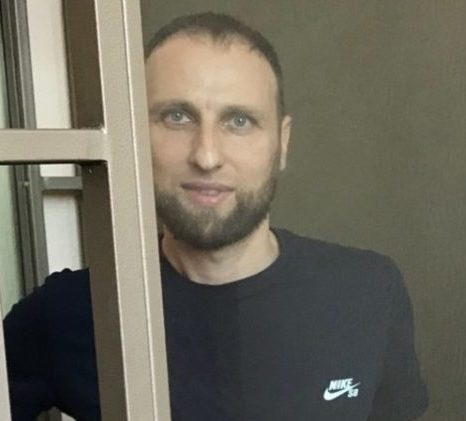
Three months after his arrest, security officers came for his brother Eskender. The mother of the family Zera became distraught and started shouting at the men, telling them to “shoot her,” as she did not want to experience the loss of another son. One of the officers replied: “We’ll have time to shoot you all.”
In July 2020, another tragedy struck the family. Suleymanov’s 3-year-old son disappeared and was later found dead. Rather than trying to alleviate the pressure on the boy’s family, the Russian authorities first investigated Suleymanov’s mother for faking her son’s disappearance and then accused her of not fulfilling her parenting responsibilities properly, shifting the blame of her son’s demise on her.
Suleymanov was not released to attend his son’s funeral. The cause of death was later established as drowning without any violent circumstances.
Server Mustafaev: Crimean Solidarity coordinator reliving the fate of his ancestors

The arrests that took place in 2019 were not unique, neither in manner nor circumstances. On May 21, 2018, in Bakhchisarai, masked and armed officers entered the house of Server Mustafaev - a Crimean Solidarity coordinator - in the early morning hours. Present were Mustafaev's four children, as well as several elderly people. The masked men tackled Server and forced him to the floor in the presence of his children.
As they took him away, Mustafaev’s small son Yusuf ran to the streets, crying that they took his “daddy” away. All the children were left behind traumatized.
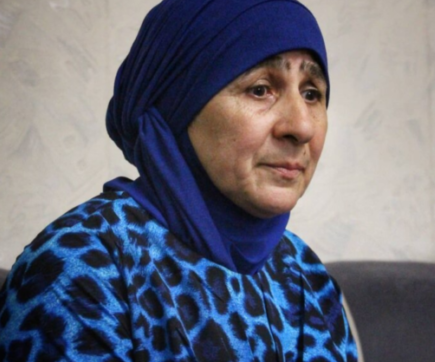
The activist was then separated from his family, subjected to torture and isolation in prison, denied proper treatment when he developed Covid-19 symptoms, and finally, in 2020, he was sentenced to 14 years in a prison colony. The charges once again involved association with Hizb ut-Tahrir, and in his case, they rested on a single vague conversation he held in a mosque.
There are two sad circumstances to Mustafaev’s case.
- As a coordinator in Crimean Solidarity, he played an important role in helping other Crimean Tatar families who lost a father due to repressions. Now, his wife and children have been sentenced to the same fate;
- For Mustafaev and his family, history appears to repeat itself. Though the activist is of Crimean Tatar descent, he was born in Uzbekistan in 1986 as his ancestors were sent here during the 1944 Stalin’s deportations. When Server was still a boy, his family returned to newly independent Ukraine to rebuild their lives in their ancestral home. Now, because of the Russian occupation, Mr Mustafaev is exiled from his home again to live in a penal colony.
Following the sentence, Mustafaev’s mother Venera went out in protest with a single picket. In response, she was subjected to harassment, called to a police station, and fined 1,000 rubles.
Rustem Ismailov: father of free, arrested and sentenced along with his father-in-law and brother-in-law
Rusten Ismailov was arrested on terrorism charges on 12 October 2016, together with the other members of the so-called “first Simferopol group.” The father of three has been taken away from his children and his wife Fatma in the early morning hours. He was then held in detention in Rostov-on-Don, where he was beaten and denied proper medical care.
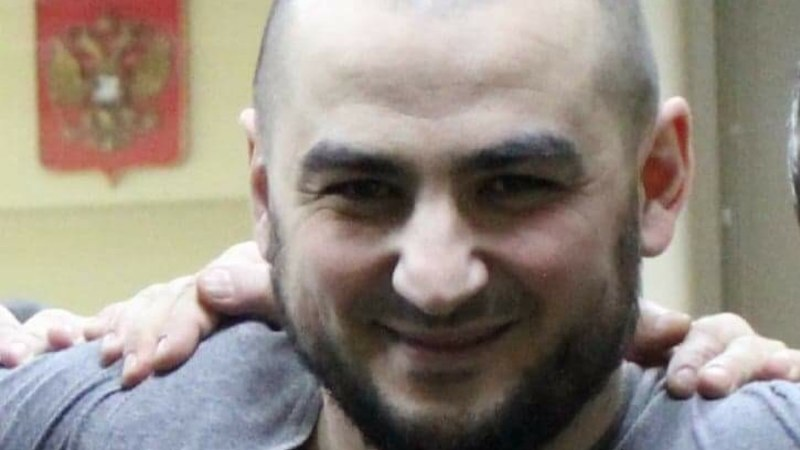
On the night from 9 to 10 of June 2019, Fatma was traveling to Rostov together with her father, then 59-years-old Enver Omerov, to attend one of the latest court hearings with Rustem. The pair was stopped on the way by security officers and Enver was arrested.
Soon after, he started feeling unwell. The called-in ambulance workers stated he had dangerously high blood pressure and needed rest, and Fatma asked the officers not to take him away in this condition, insisting that the father will arrive at the police station once he has rested. The police ignored Enver’s and Fatma’s pleas, and instead threatened to handcuff her to a generator if she did not stop “getting in the way.”
Unbeknownst to them, the night of June 10 saw another wave of arrests, intended to target Rustem’s family among others: Enver’s 32-year-old son Riza Omerov was among the newly arrested. And just in the same month when his brother-in-law and father-in-law were arrested, Rustem was sentenced to 14 years in a maximum-security prison.
According to Aider Dzhapparov -- one of the men arrested with Riza -- soon after these arrests, many members of their religious community started receiving threatening phone calls, warning them that they will “be next.”
Several months later, Enver was sentenced to 18 years of harsh prison, despite his advanced age, while his son Riza was sentenced to 13 years. In the cases of all three men, they were sentenced for terrorist activities through alleged association with Hizb ut-Tahrir. The evidence their sentence rested on included mainly “secret witnesses” and overheard conversations on religious topics, none of which indicated any violent intentions.

After hearing the verdict, Fatma attempted to reach her father in the courtroom and touch his hand. She was denied this and was punished for “breaching courtroom procedures” with administrative charges.
The non-violent resistance
We could continue listing many other similar cases. Crimean Tatars make up ¾ of over 100 political prisoners currently held by the Kremlin and around 191 Tatar children are growing up without their parents, while 25 of them still suffer serious mental conditions due to stress and trauma. Even now it is hard to estimate the extent of harm this will cause in their lives. The adults left behind also have to deal with personal loss, economic problems due to a decrease in family income, and continuing harassment by the authorities.
The treatment of Crimean Tatars has been called a war crime. This is a fitting term, not only in the context of the Russian war against Ukraine but also of the less visible war against Crimean Tatars themselves.Many of those who were once disinterested in politics and lived their life peacefully are now getting involved in activism, independent journalism, and human rights advocacy.
One thing must be kept in mind: the terror against Crimean communities and families is not collateral damage. Those suffering the absence of their imprisoned family members are equally directed.
The clear intent is to sow fear among the Crimean Tatar community. The most visible and politically active members are imprisoned to stop anyone else from engaging publicly in opposition to the regime. The threat of a family torn apart and left to fend for itself can dissuade many from involving themselves in activism, or even from voicing their positions.
However, something different happened as a result. Regular Crimean Tatar citizens began organizing themselves, grouping together to protect each other’s homes and families against violent attacks. Many of those who were once disinterested in politics and lived their life peacefully are now getting involved in activism, independent journalism, and human rights advocacy.
Several initiatives were launched by Crimean Tatar activists to support children left without their fathers. Bizim Balalar, or “Our Children," is a charitable initiative founded in 2015 by journalist and activist Lilia Budzhurova. While its primary goal is fundraising and providing financial assistance to affected families, they also collect various toys and gifts for the children, organize leisure activities and provide psychological and legal aid.
The initiative’s fundraising activities found response all over the world, including the United Kingdom, Australia, Indonesia, or Canada.
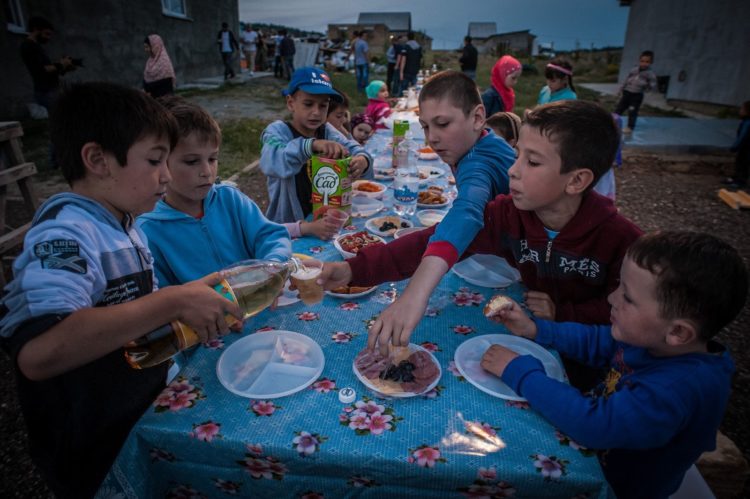
A similar project, Crimean Childhood, was launched in 2017. Its founder, Mumine Salieva, stated that she found the motivation for the project upon the arrest of her husband. Seeing the emotional pain this has caused to their four children, she realized that many more children of Crimean Tatar activists will need support in their upbringing, education and intellectual development. This became the primary goal of Crimean Childhood.
Mumine’s initiative, funded by volunteers, attracted psychologists, teachers, tutors and various artisans, organizing common activities and lessons for the children. This is intended not only to help them cope psychologically with the new situation but also to develop useful skills, including English language knowledge, pottery, carpentry, welding, painting, or cooking. The volunteers also organize common prayers and teach subjects in the Crimean Tatar language, which is becoming virtually impossible in Crimean schools.
Taking part in Crimean Childhood’s activities also provides a safe space for children, who are afraid of being ostracized by their peers in schools. After all, their classmates have been brought up believing that only criminals go to prison. Luckily, the initiative also works with teachers and local communities to help other children understand the situation, and to prevent bullying.


The Crimean Tatar community moved spontaneously to protect their most vulnerable members, and to serve as a surrogate for their lost loved ones. But the resistance has grown beyond helping prisoners’ families.
Crimean Solidarity is a group that facilitates social and medical support to families and they work together with Crimean Childhood to help raise children without fathers, but their efforts have a much broader scope. They also group together lawyers, journalists, and volunteers from all walks of life.

Some of their activities are focused on providing legal support to unlawfully imprisoned or to representatives of banned organizations like the Mejlis or Hizb ut-Tahrir, other members provide news coverage on human rights issues on the peninsula.
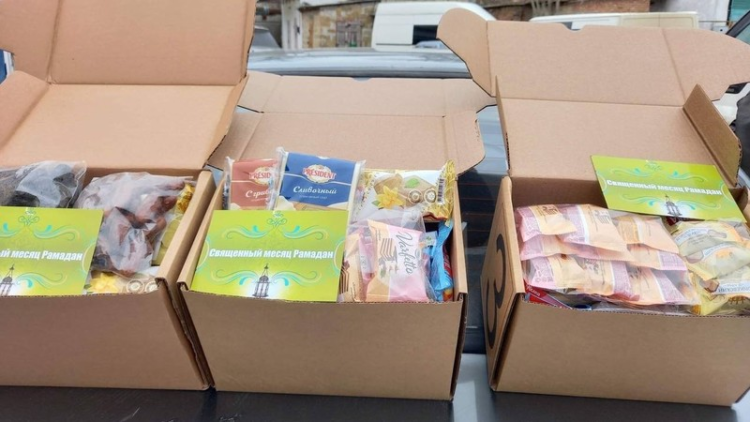
Crimean Solidarity is not registered as an official NGO. It is simply a grassroots civic movement, founded spontaneously in response to repressions. Its members are among the most targeted by the occupational authorities, but also the most active in defending other victims and in solidifying Crimean Tatar resistance.
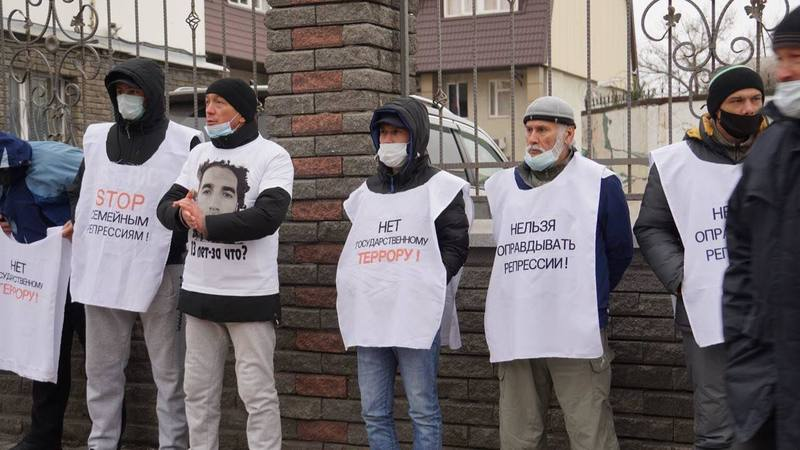
Despite ongoing efforts by the authorities to silence Crimean Solidarity, the group has only grown stronger since its founding in 2016 and now represents a truly mass, non-violent resistance to the occupation.

Many Crimean Tatars lost their home peninsula due to the occupation; this did not prevent them from continuing the fight, however.
CrimeanSOS, co-founded by Crimean Tatars like Tamila Tasheva and Aliev Alim, started on the day of the Russian occupation as a Facebook page providing reliable news coverage but has since then expanded its activities. One of its chief aims became assistance to internally displaced persons (IDPs), both from Crimea and from Donbas. This includes humanitarian, psychological and legal aid, fostering social initiatives and developing community among IDPs. The group also continues with news coverage on human rights abuses in Donbas and Crimea and the situation of IDPs.
Deportation, autonomy, and occupation in the story of one Crimean Tatar
The initiative has made great strides in supporting victims of Russian aggression.
CrimeaSOS supplied $500,000 worth of humanitarian aid, supported around 160,000 IDPs, provided 80,000 consultations and shelter to more than 1000 people. These efforts are conducted in tandem with UNHCR and the “Hub House of Free People'' initiative in Kyiv.
Similar efforts have been undertaken in Ukraine by other NGOs like the Crimean Tatar Resource Center, aimed at protection of the rights of Crimean Tatar people and of their identity, or by bodies and media exiled from the peninsula, like the Mejlis or the Crimean Tatar TV channel ART TV.
Crimean Tatar expatriates and expatriate organizations also play a vital role in fundraising, spreading awareness and organizing events, such as the 2017 London marathon in support of the Crimean Tatars’ plight.

The Kremlin understands the power of civil society and the non-violent resistance, which has a strong tradition among Crimean Tatars. That is why it keeps targeting its members with false charges, why it brands them as extremists, terrorizes their families, and why it sentences them in kangaroo courts. But as the members of the Crimean Solidarity stated:
“With each new detention and/or arrest we are becoming stronger and stronger, because dozens of new people join us.”
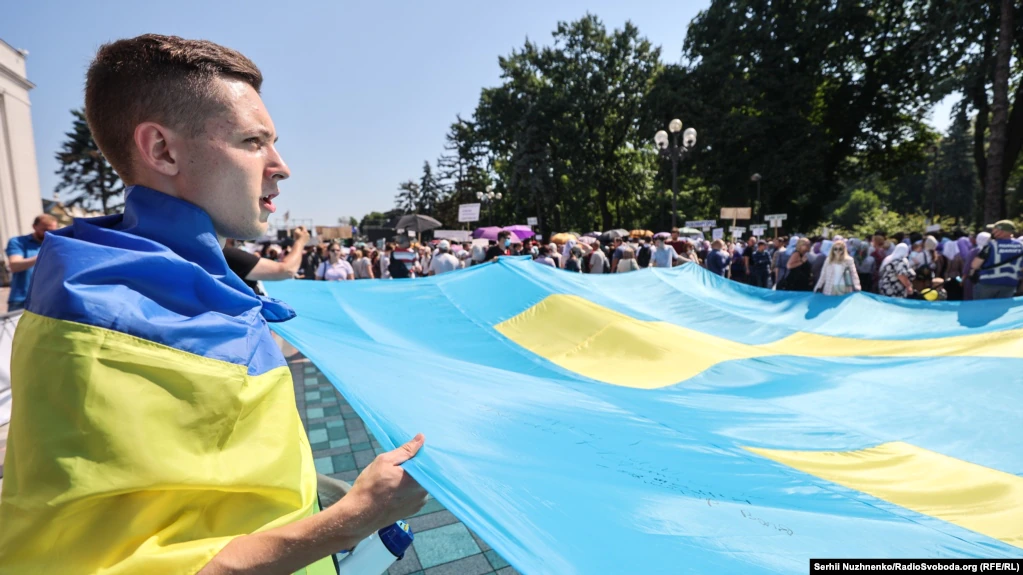
Those suffering the loss of their lost ones, like Mumine Salieva, are inspired to help other victims. The assault against Crimean Tatar families and communities, intended to tear apart their solidarity, uproot their identity, and scare them into submission, resulted in the opposite - ever-growing mutual support and unity in the face of the repressions.

Related:
- Crimean Tatars in the crosshairs of Russia’s war on Muslims
- Russia’s vile attempts to discredit the Crimean Tatars must not be kept silent
- Russia comes for Crimean Tatars in occupied Crimea once again
- Pull off a kangaroo court in five easy steps: a how-to guide from Russia
- (No) right to a fair trial, or a manual to Russia’s conveyor of repressions in Crimea
- Imaginary “terrorists” with no terror acts: Russia’s collective punishment of Crimean Muslims
- Russian prison system is a ticking time bomb for health of a Crimean Tatar
- Win for Ukraine as PACE adopts strong resolution in support of Crimean Tatars persecuted by Russia
- Deportation, autonomy, and occupation in the story of one Crimean Tatar


